Longer Feed Tube for 12ga Simi Automatic
As a shotgun nerd, I've tried just about every type and style I could get my hands on — semi-autos, bolt actions, bullpups, and box magazine-fed shotguns.
Like any southern country kid, I grew up with some form of pump-action shotgun in my hands from the age I could hold it up.
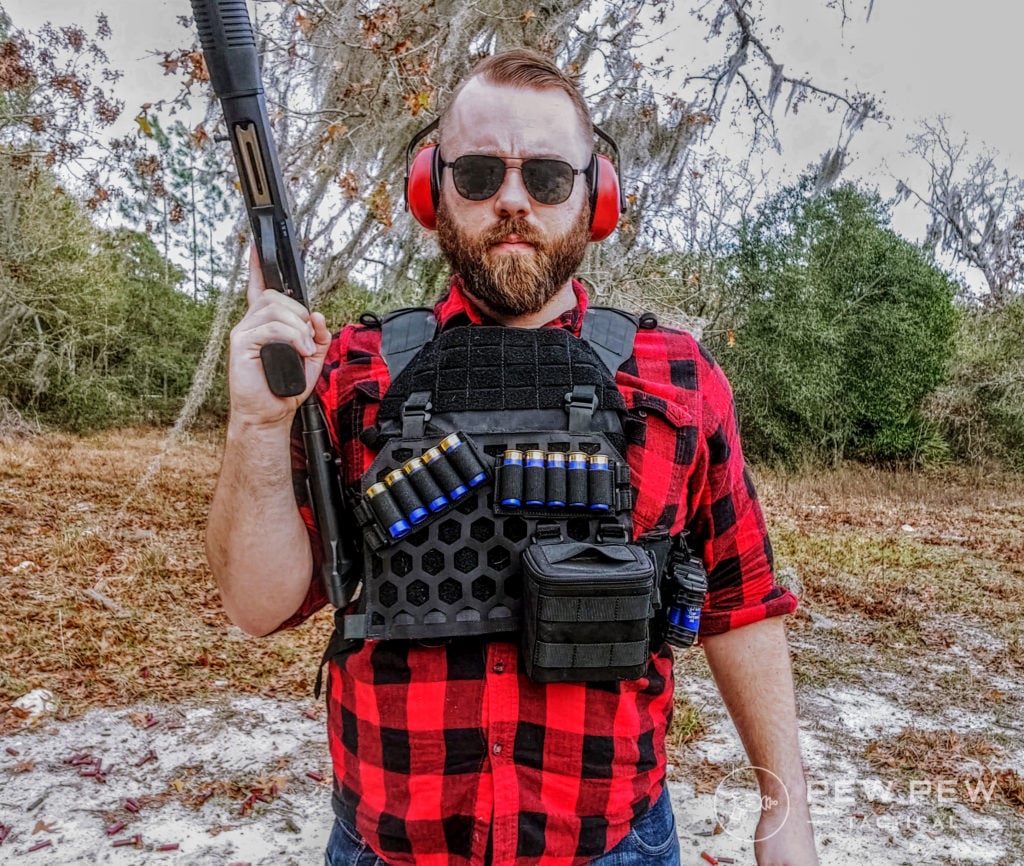
But these days, box mag shotguns are gaining in popularity.
Armscor, Remington, Mossberg, Saiga, Fostech, Blackwater, and tons of small Turkish outfitters produce tons of box-fed shotguns, flying in the face of tradition!
To some, it's absolute heresy even.

Repeating shotguns are supposed to have tubular magazines positioned below the barrel. This was how John Browning intended.
I know the last thing the world needs is another .45 vs. 9mm debate, but hear me out here.
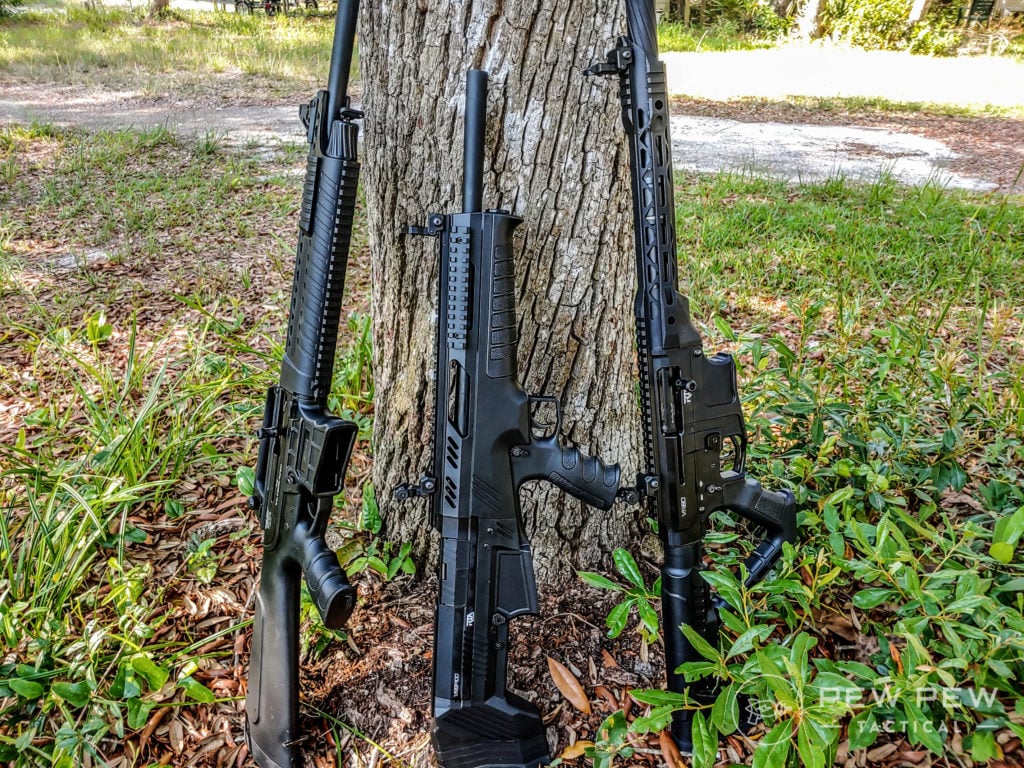
What's the better choice between shotguns? A box fed option or a tube magazine gun?
Well, we're going to lay it all out on the line and answer that very question.
But first, before we dive deep, let's define some terms, so we are all on the same page.
Table of Contents
Loading...
Tube Magazine Basics
Tubular magazines, sometimes called tube magazines, most commonly feature a fixed magazine sitting beneath the barrel of a shotgun
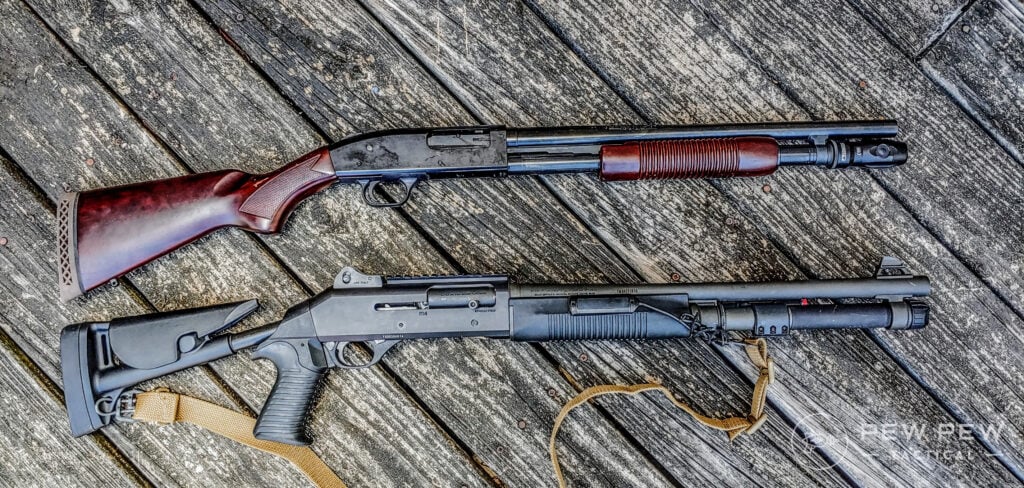
Inside the tube, ammunition rests horizontally in the magazine. Ammunition moves rearward from the tube and into the chamber.
Like any other magazine, the components consist of the magazine body, spring, and follower.
Generally, a gun is outfitted with a single tube containing ammunition. Shotguns equipped with multiple tubes are becoming more common, though!
The KSG, the TS 12, and the SRM1216 all wear more than one tube to increase capacity.
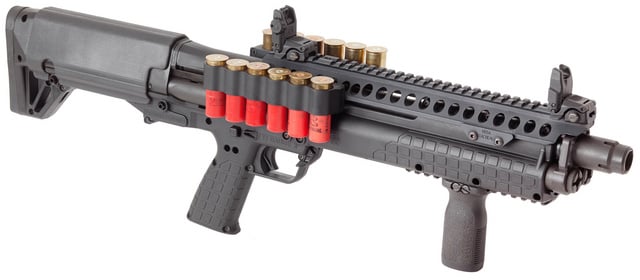
Check out the Best Magazine Fed Shotguns here!
Box Magazine Breakdown
Box magazines use detachable magazines with a rough box shape to them — similar to a magazine you'd find in just about any semi-auto gun.
Like any other detachable box magazine, it comes as either double-stack or single stack and uses various degrees of geometry for reliable feeding.
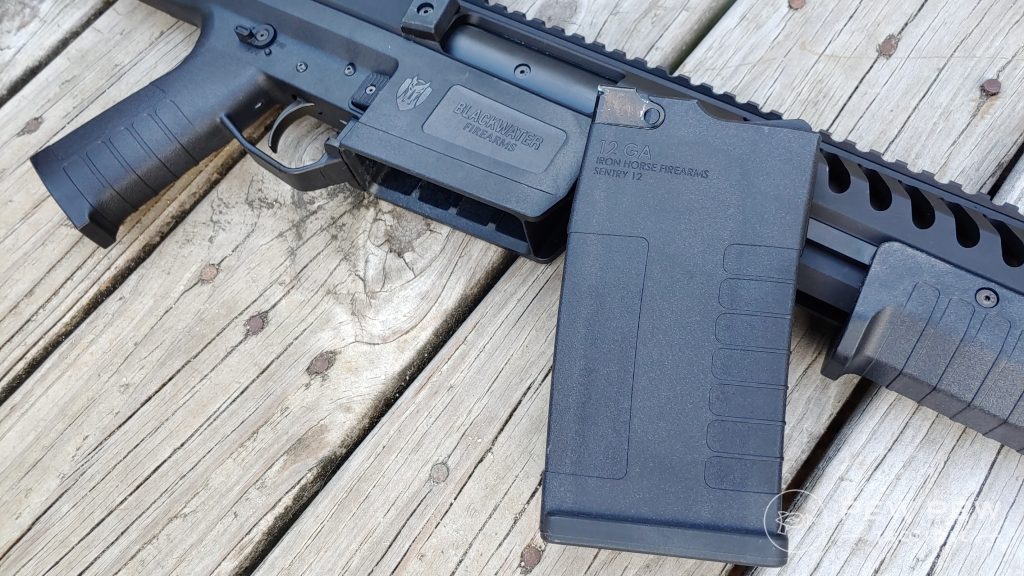
Box magazines can contain anywhere from 2 to 20 rounds, depending on the manufacturer.
Shotgun box magazines are also available as drum magazines — circular in nature and containing a higher capacity than most box magazines.
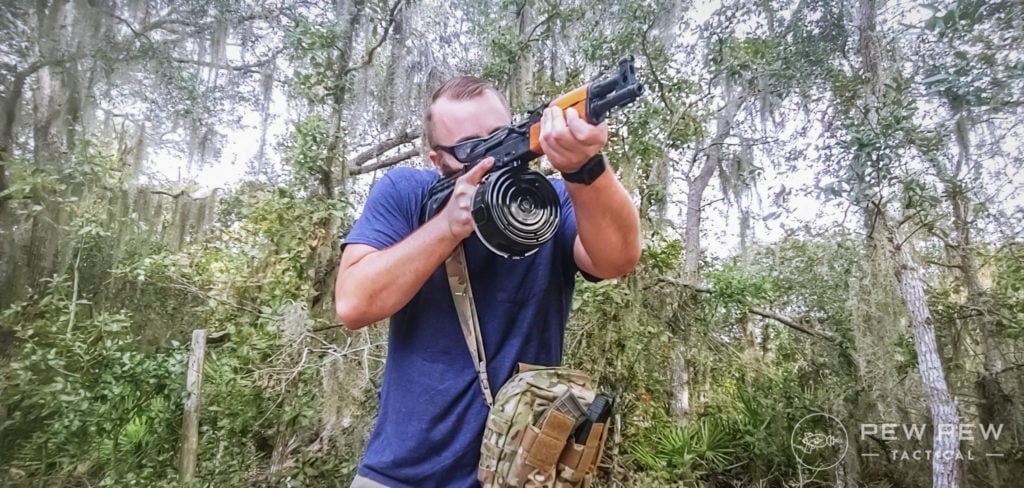
Faceoff: Tube vs. Box Mags
Moving past definitions, let's look at the guns.
If you've been around Pew Pew Tactical long enough, you know I'm a shotgun nerd. I've had plenty of experience with both tube and box magazine guns.
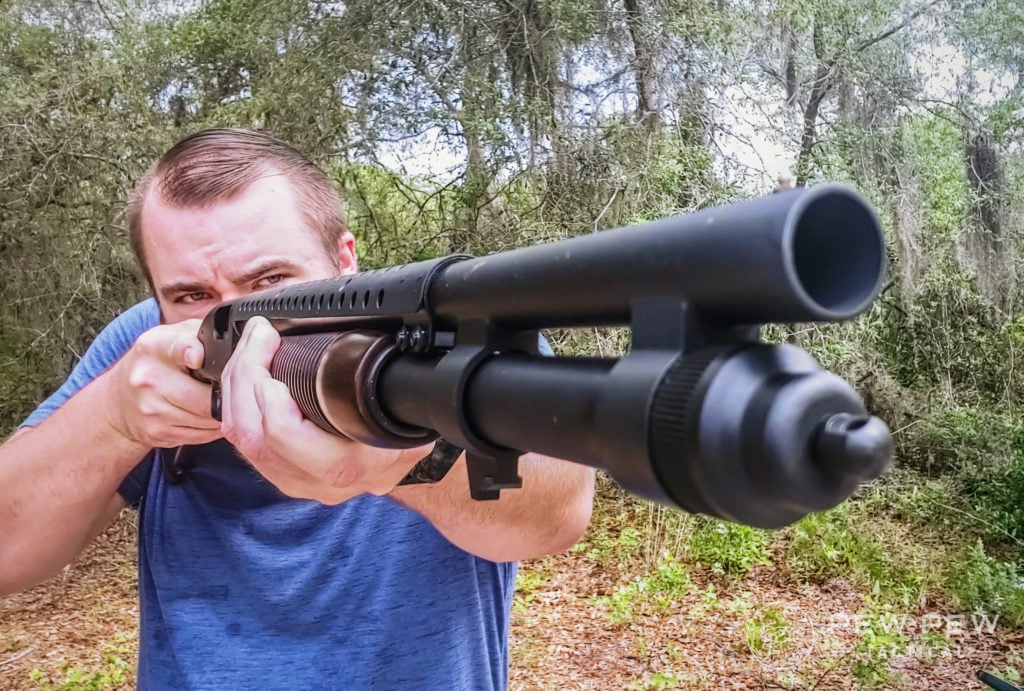
So, I'm prepared to take you through this grudge match.
We'll let these two styles face off in a series of categories to ultimately find out which one comes out on top. Along the way, we'll break down the pros/cons.
First up…ammo.
Ammo Capacity
On average, shotguns with box magazines have higher capacities.
It varies between different guns, but if we look at the highest capacity shotgun in each category, we can easily see box magazine-fed guns hold more.
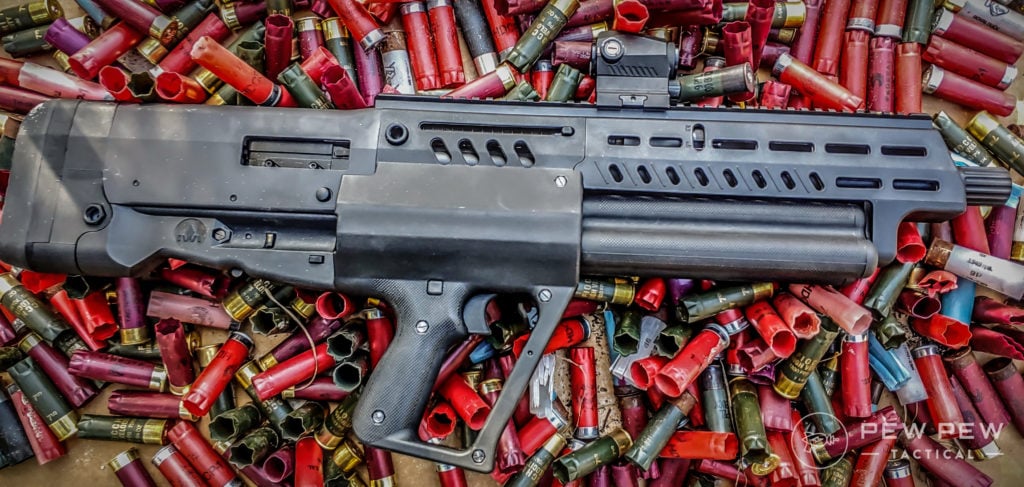
The TS12 with its three magazine tubes equals 15 rounds total.
A Mossberg 590M, a Saiga, or the VR series hold roughly 20 rounds of ammunition in various magazines.
Admittedly, some box-fed shotguns do not offer high-capacity options.
The VR80, for instance, only offers a 5+1 capacity.
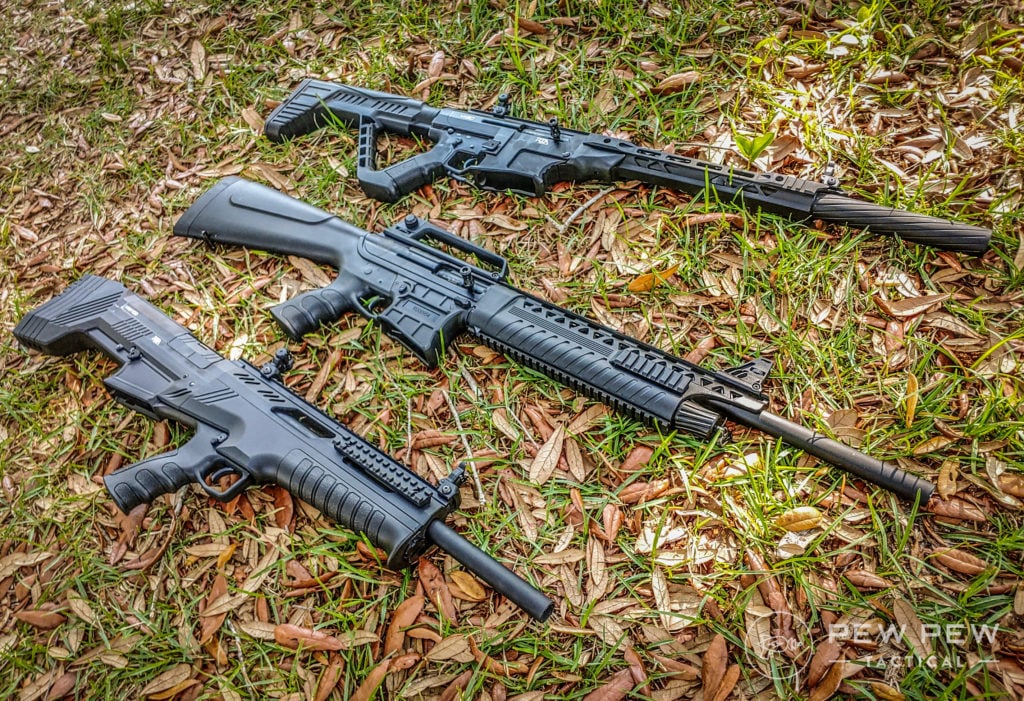
On the other hand, traditional tube-fed guns often cap out at 8 to 9 rounds.
That said, some crazy 3-Gun variants will extended tubes that take 13 rounds of ammunition.
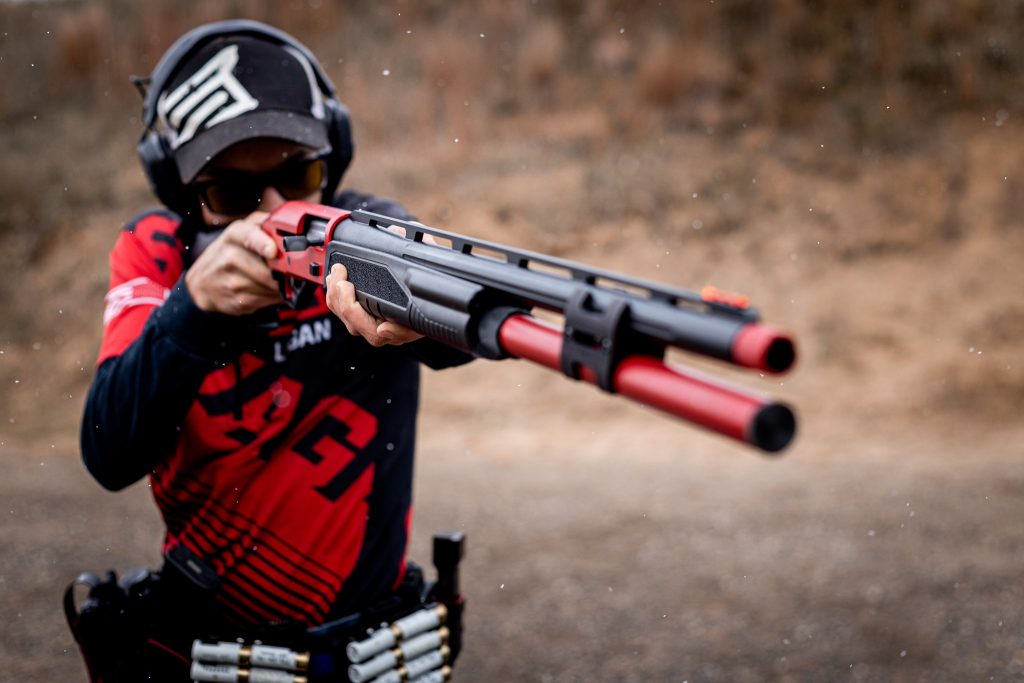
Box magazine-fed shotguns also have an advantage when it comes to SBS or firearm variants.
The length of a magazine tube is often limited by the length of the barrel, so short barrels mean less ammo.
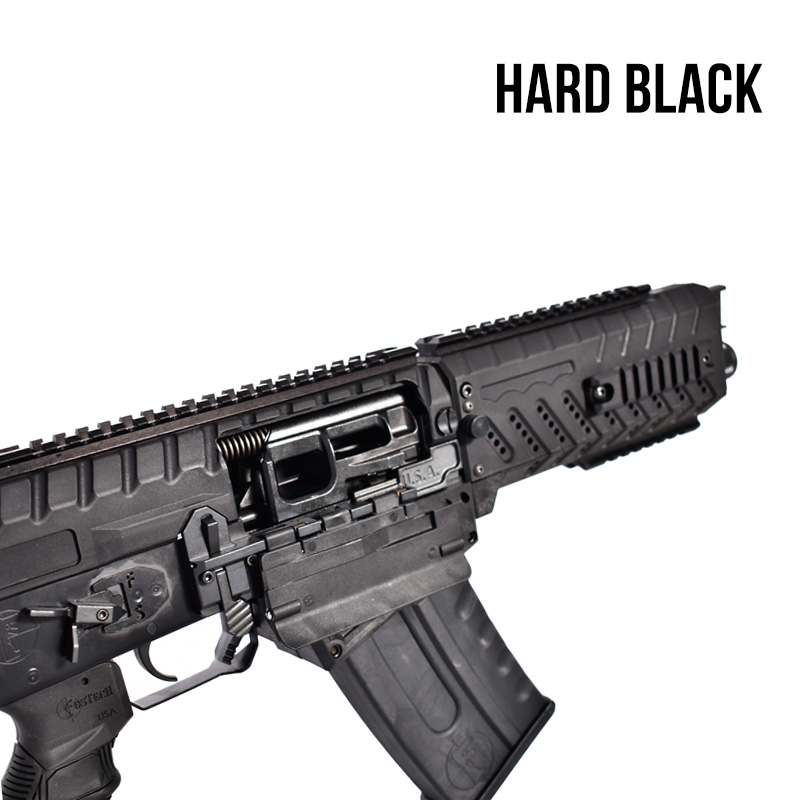
A tube-fed shotgun with a 14-inch barrel is capped out at five rounds, but a magazine-fed shotgun has no such limits!
A Mossberg 590M Shockwave with a 14-inch barrel can use 5-, 10-, 15-, or 20-round magazines without issue.
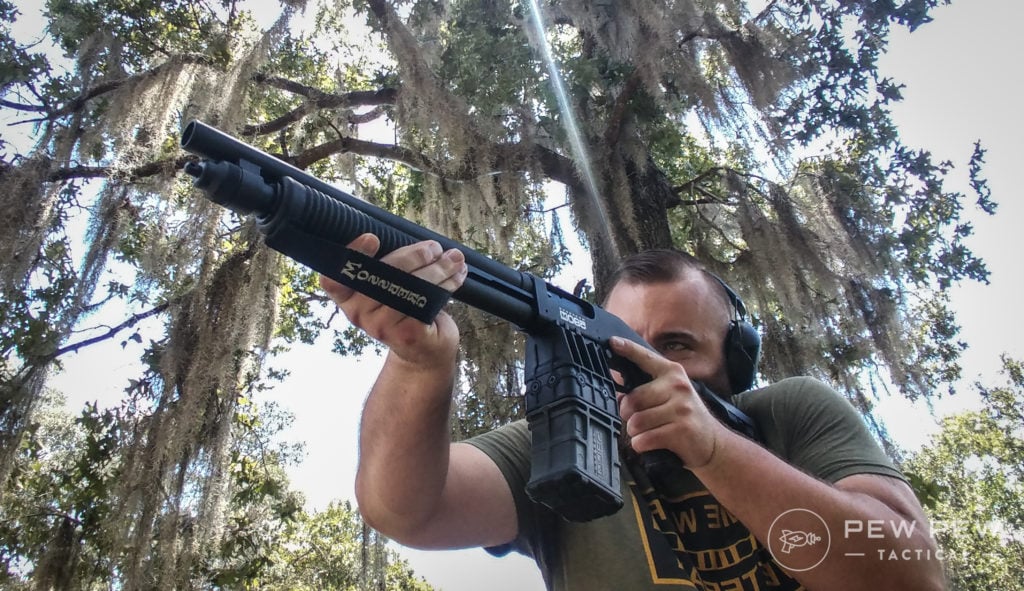
Reloading
Right off the bat, I bet you're thinking reloading with a box magazine-fed shotgun is faster and more efficient.
In some ways, it is.
With a box fed magazines, you slap another mag in the gun and go.
With tube magazine-fed shotguns, you have to thumb in one or two rounds at a time.
If you run your gun empty, then slapping another magazine in is much faster. However, shotgun aficionados know that you never run your gun empty.

Unlike a box mag, a tubular magazine allows you to reload on the fly, constantly topping off your magazine tube as necessary.
A skilled shotgunner will never need to reload their gun from empty. Being able to keep your gun constantly loaded is faster than having to reload.

Box-fed magazine shotguns are a better option for those who want to apply their rifle skills to their shotguns.
Guns like the Sentry 12 make it easy to translate rifle skills to a shotgun.
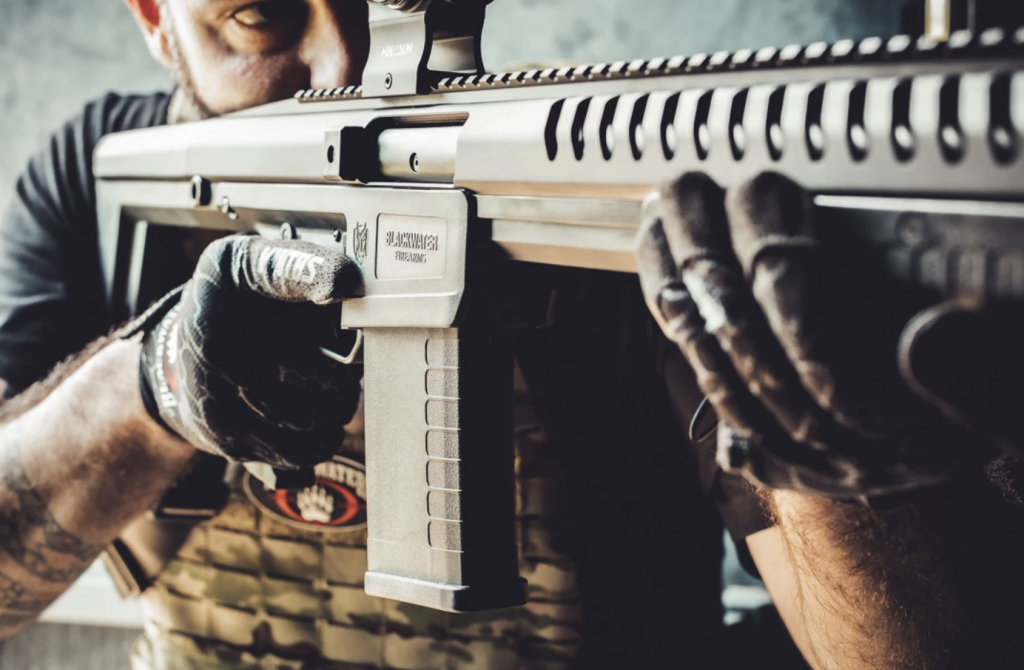
That said, shotgun ammo is fat and long and makes a magazine rather large and thick.
This increases the challenge in reloading a mag-fed shotgun under pressure. It can be tough to get your hands around the mag and toss it in the gun.
Some guns require you to aggressively slam the magazine in place to ensure the mag catch is triggered. Because the ammo is so much heavier than rifle rounds, it can be a challenge to seat the mag properly.
AK type magazines that require some rock to roll admittedly do not have this issue.
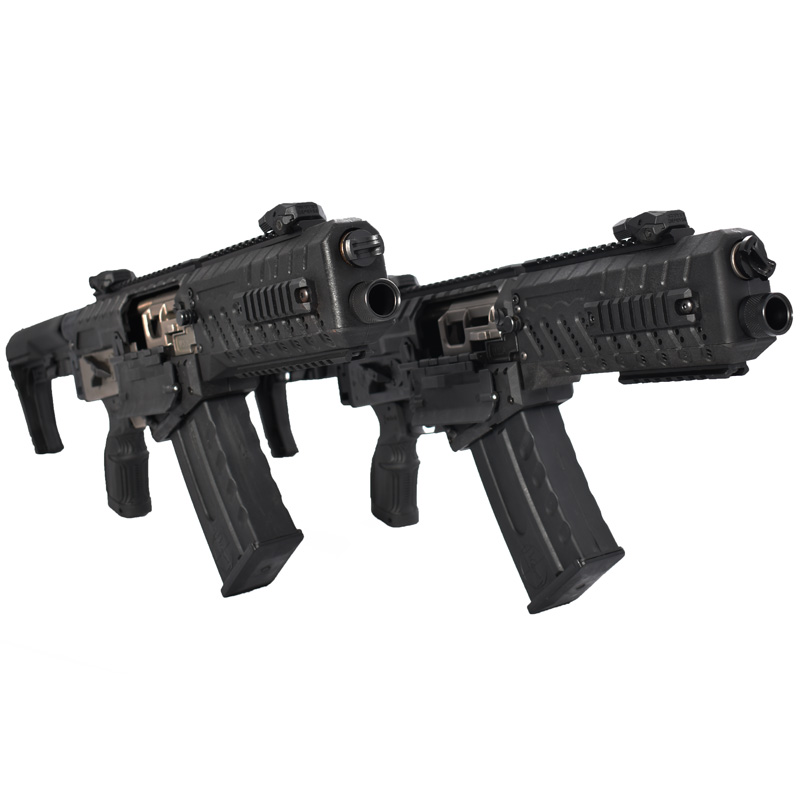
Ergonomics
Ergonomically, a tube-fed shotgun feels a good bit different than a box magazine-fed shotgun.
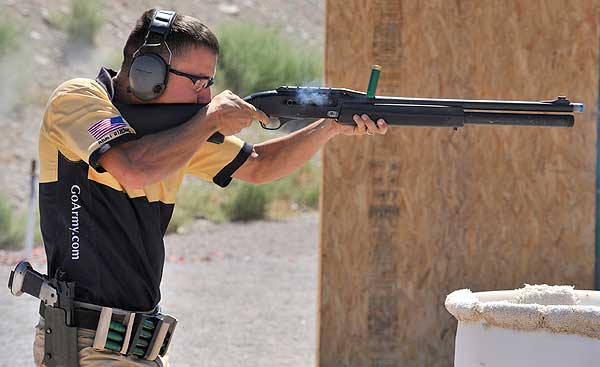
Tube-fed shotguns are often better balanced for traditional shotgun purposes.
Shotguns should swing quickly and easily, and the loaded magazine tubes add some weight that allows those smooth swings. That loaded tube weight also reduces muzzle rise until the tube is emptied.
A box-fed shotgun is more like a rifle with the weight in the center of the gun. It swings less intuitively and feels entirely different from a normal shotgun.
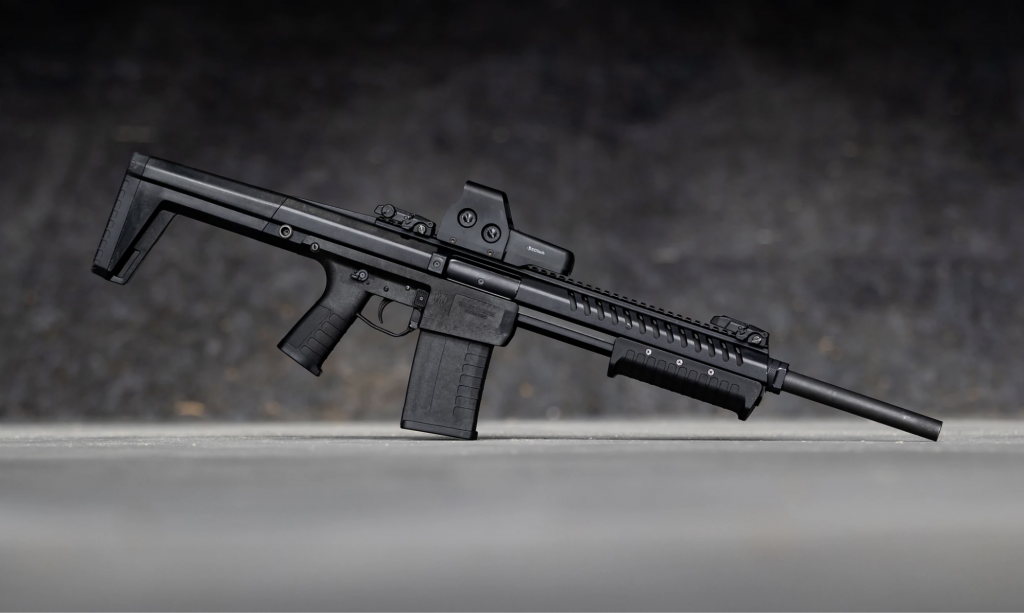
And again, shotgun ammunition is bulky, so magazines are bulky.
Shotgun magazines that hold something like 10 rounds are often rather long and wide. This extra bulk makes shotguns with longer magazines somewhat unwieldy.
Nineteen round magazines are great, except when it becomes a monopod in a kneeling position.
Mossberg's double-stack shotgun magazine is a bit better about this, but boy, oh boy, is it dummy thicc.
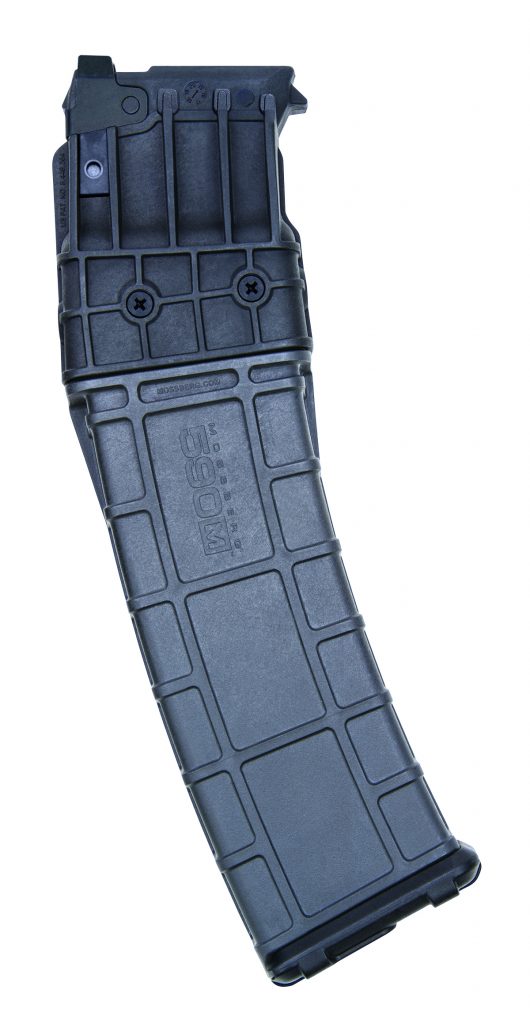
The length, girth, and bulkiness of shotgun shells also extends to the magwell and the receiver of a mag-fed shotgun.
This often makes them longer and less ergonomic, with some quasi-odd control options on some of these mag-fed shotguns.
The AK platform semi-auto shotguns are often a bit more ergonomic because the controls stay roughly the same as a standard AK rifle.
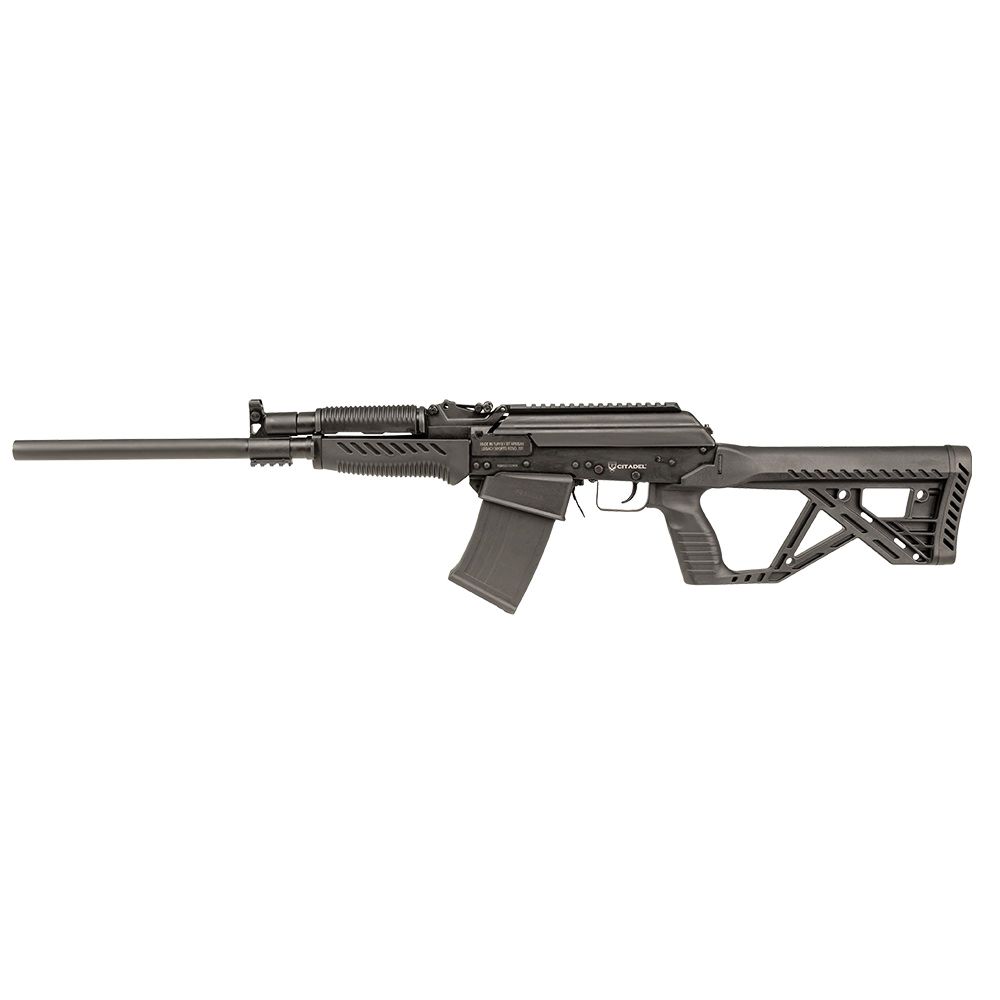
However, I think you'll find that most mag-fed shotguns are not ergonomic.
The sleek, slim, and less bulky designs of tube-fed shotguns often make them lighter and more comfortable to use.
Logistics
Tactics win battles, but logistics win wars.
Examining tube and box fed shotguns through a logistic lens brings up a few interesting issues.
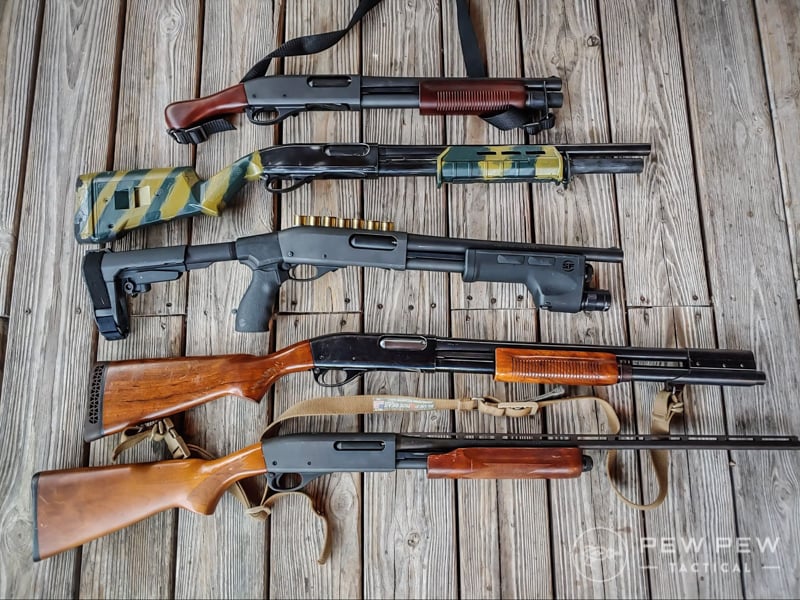
Tube-fed shotguns are so much more popular and prevalent that most shotgun tactics are built around tube-fed shotguns.
The skills I use with the Mossberg 590A1 translate to the Remington 870, and even the Benelli M4.
Box-fed shotguns are often so different that moving from one to the other can be a very different experience.
Accessories are also mostly designed for tube-fed shotguns.

From accessory mounting platforms to gear designed to carry extra ammo, it's all built around tube-fed guns.
Finding pouches that accommodate shotguns magazines, especially extended mags, is difficult.
I can feed a tube-fed gun with bandoliers, an AmmoPal, a VTAC shotgun pouch, and side saddles.
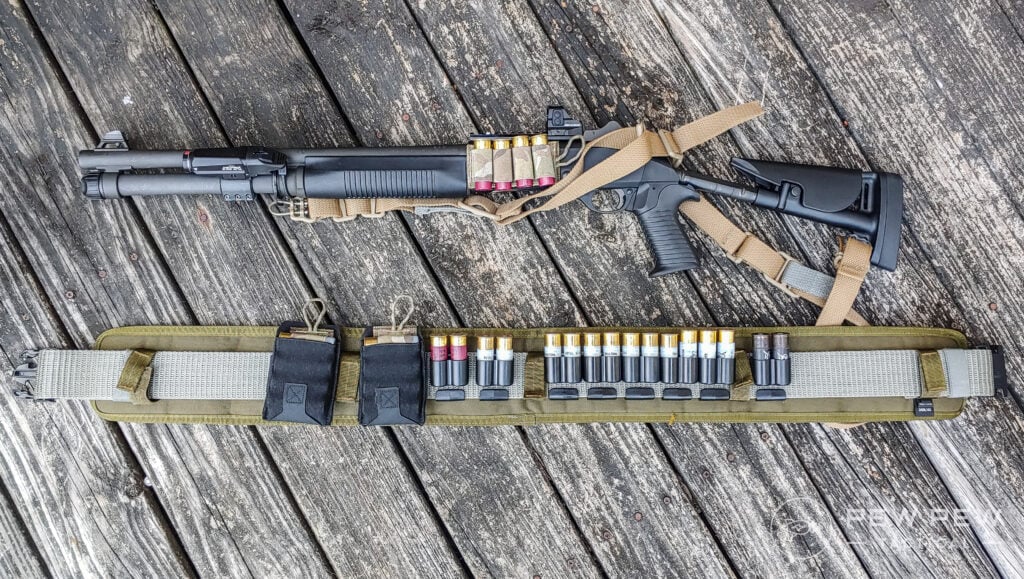
Typically, shotgun accessories do not function well with magazine-fed shotguns.
Additionally, box-fed shotguns are not standardized by any means.
Rifle companies have seemingly standardized AR, AK, and Glock magazines, but shotguns have no such commonality.
Add on that they often offer broadly different designs and shapes, and it becomes very hard to find pouches that work.

Reliability
Oh my, this is a tough subject to discuss when comparing every tube fed and mag fed shotgun all at once. It's actually somewhat impossible to discuss.
Both have reliable and unreliable options.
But since we are focusing on the means in which they feed ammunition, that is where our reliability discussion will focus.
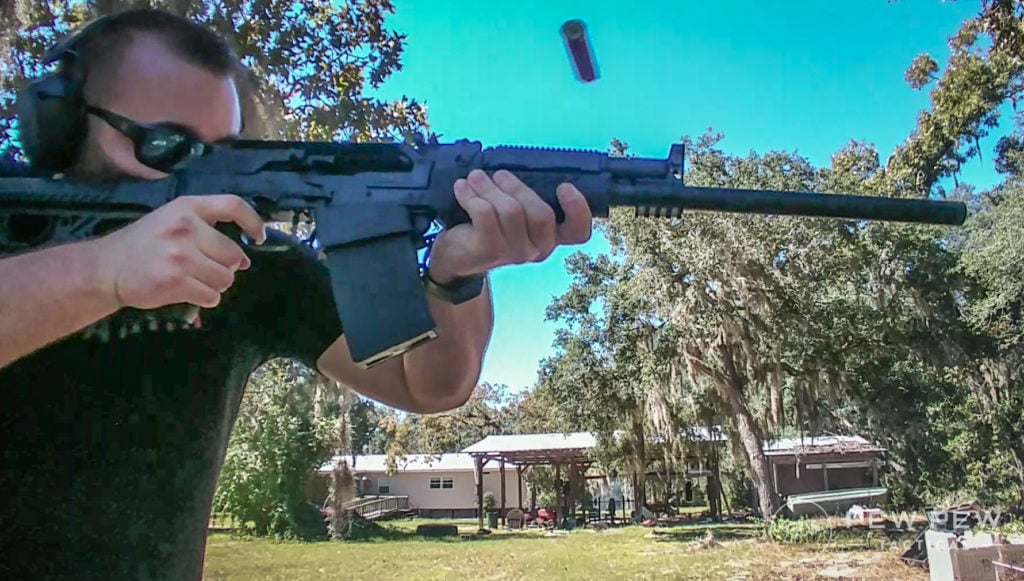
From a reliability standpoint, the tube magazine shotgun has been around since 1893 and has been refined to a point where it's hard to mess it up.
Tube-fed designs are superbly simple, and they work.
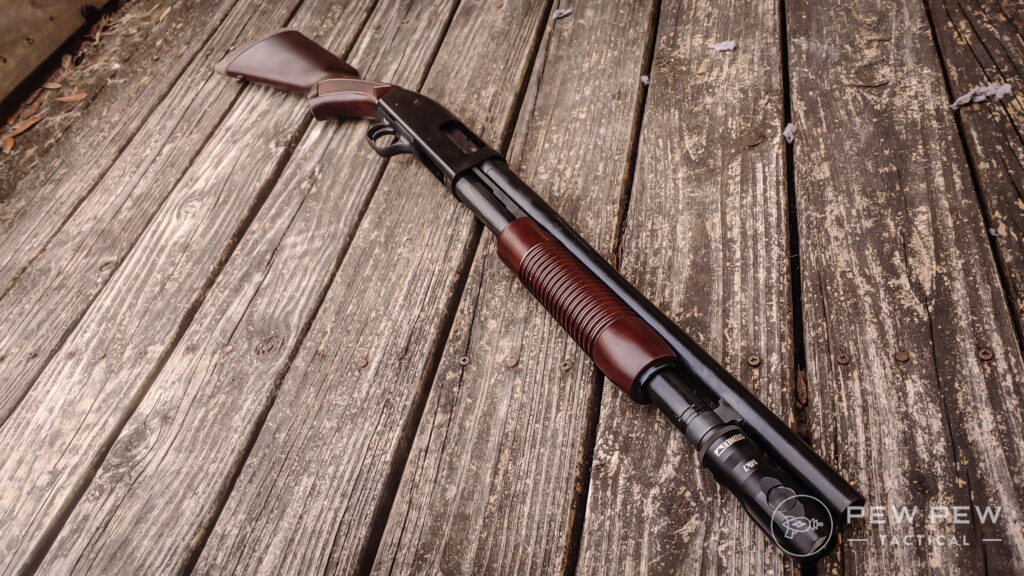
On the other hand, magazines can be finicky and quality varies between manufacturers greatly.
Unfortunately, magazines simply place another fail point in the gun's design.
Poor magazine fit, tilting followers, and dirt and debris can make a magazine more difficult than most, especially with the plastic shell body shotguns use.
The Little Things
There are a few factors all shooters need to consider when discussing the various shotgun types.
These do not necessarily fit in any particular category but warrant discussion.
Slug Select Drills
A slug select drill is a core shotgun skill that challenges a shooter to instantly swap from buckshot to slugs.
Sometimes buckshot doesn't offer the range you need to hit your target, so you swap a slug into the gun and go.
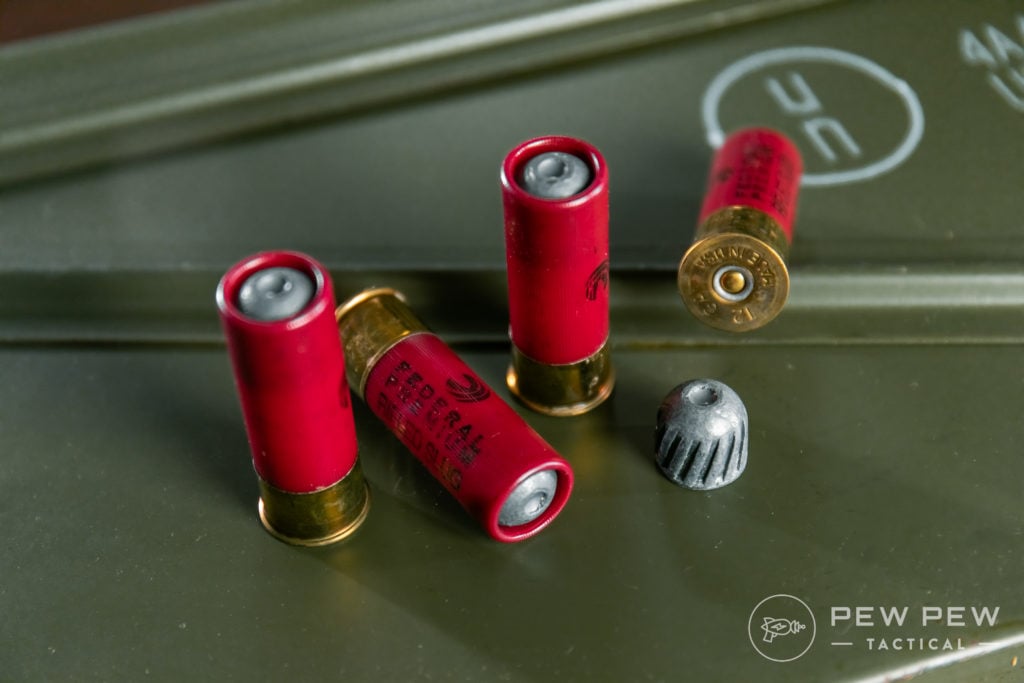
With a tube-fed shotgun, you can insert a slug into the tube, work the action and have a slug ready.
Or you can open the chamber, clear it and slide a slug into the port.
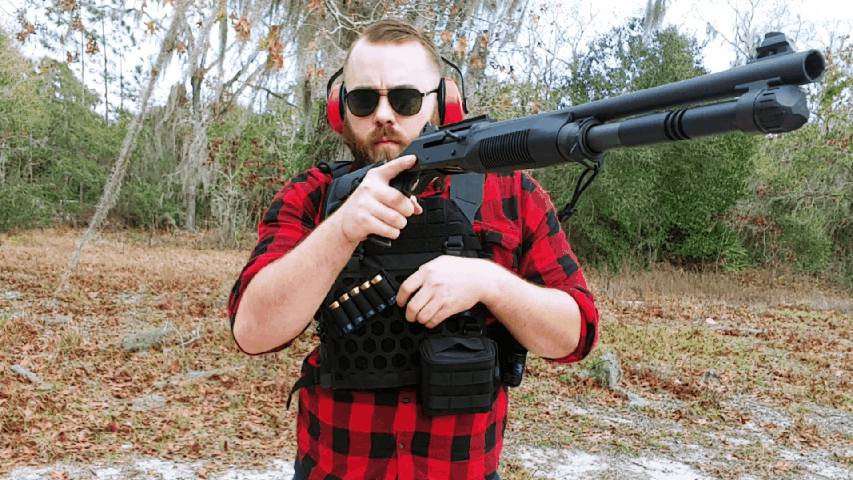
With a box mag shotgun, you have to remove the magazine, then load a round into the magazine or into the chamber.
Then reinsert the magazine and keep firing. Alternatively, you can keep a spare mag dedicated to slugs to switch to on-demand.
Doing a slug select drill with a tube-fed shotgun is often more intuitive and faster than with a magazine-fed shotgun.
Port Loads
A port load, or emergency shotgun load, occurs when the gun runs completely dry and the shooter inserts a round through the ejection port directly into the chamber.
Shotguns have low capacity, and this emergency reload allows you to have a round ready just in case.
Port loads are only compatible with tube-fed shotguns.

Box magazine-fed shotguns simply do not need to. When the gun is empty, you slap another magazine, and you are ready to rock and roll!
These emergency loads are necessary due to the limitations of tube-fed shotguns. That limitation is gone with box mag shotguns.
Magazines Left Loaded
Shotgun shells use plastic hulls, and as we know, plastic is somewhat malleable.
When left under pressure, these hulls can morph and become malformed. Shells left in a magazine for a long period of time are constantly under pressure.

That pressure can begin to flatten the tops and bottoms of the shells.
This can very easily create issues with the gun feeding reliably.
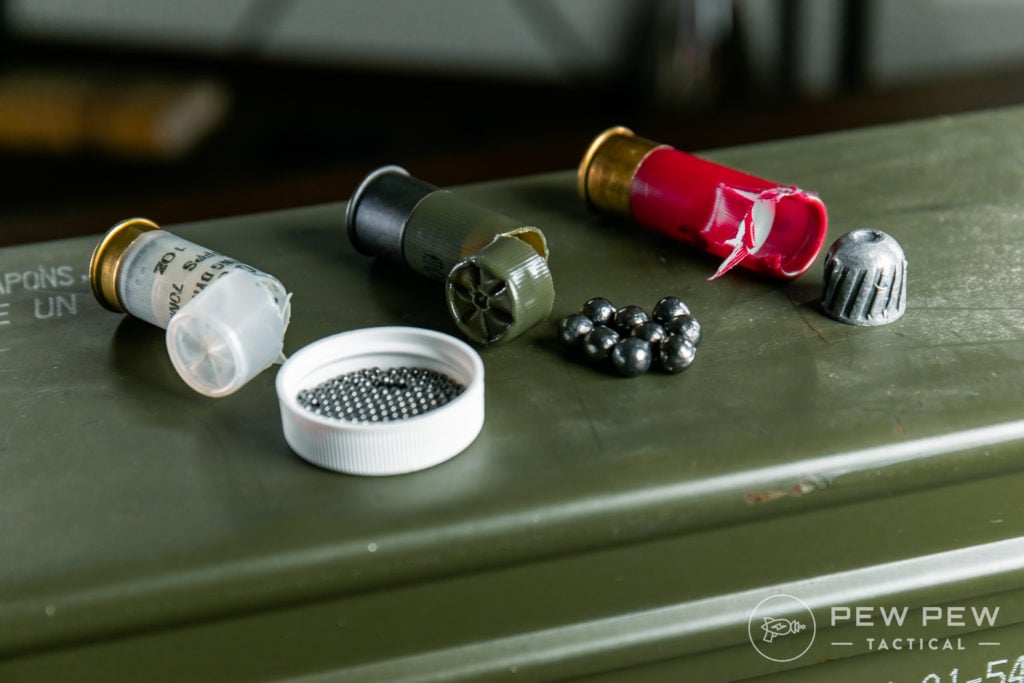
How long can you leave a shotgun magazine loaded?
Well, it depends on the shells and magazine.
Some shells are more rigid than others, and some magazines apply more pressure than others. It's impossible to predict accurately.

If a box magazine shotgun is in your arsenal, it's wise to occasionally unload the magazines and ensure the rounds are not deforming.
Once every quarter would be wise, and obviously, as you see a lack of deformation, the gap can be larger.
Conclusion
So, what's better — a tube fed or magazine fed shotgun? In my opinion, all things considered, I'd tell you to go tube-fed.
Tube-fed shotguns are more available, training for them is more abundant, and they tend to be less finicky.
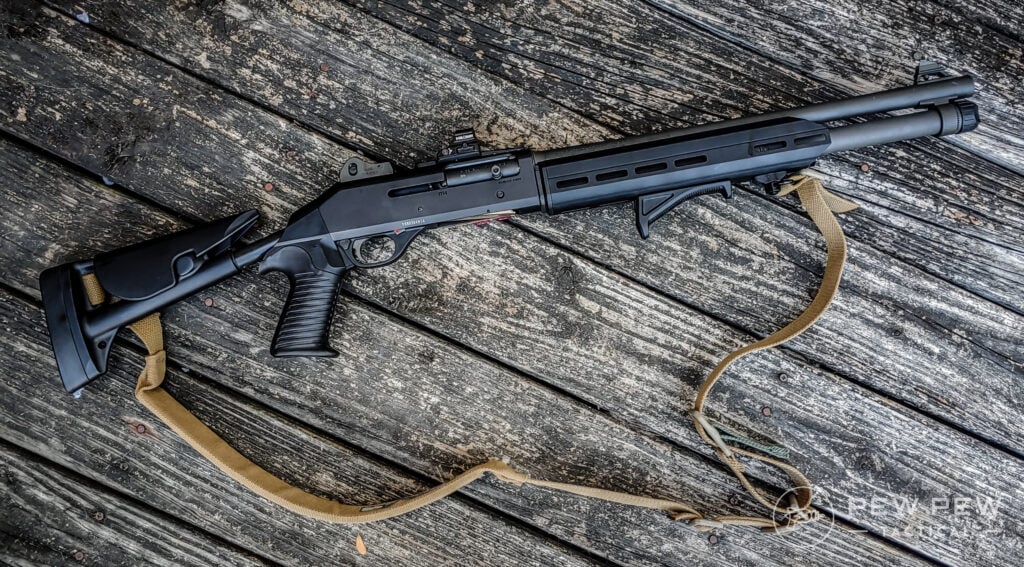
My personal favorite shotgun is a Benelli M4, and I feel it's more than capable of home and self-defense.
That's not to say that box mags are bad or even unreliable.
Great strides have been made in box-fed shotguns, and they undoubtedly will get better. I'd love a Fostech or one of those civilian legal AA-12s.

Until then, though, my Benelli M4 will sit ready for home-defense tasks.
What do you fine folks think? Are you a tube- or a box-mag kinda shooter? Let us know below! Interested in more shotgun content? Check out the Best Home Defense Shotguns.
Source: https://www.pewpewtactical.com/tube-fed-vs-magazine-fed-shotguns/
0 Response to "Longer Feed Tube for 12ga Simi Automatic"
Post a Comment